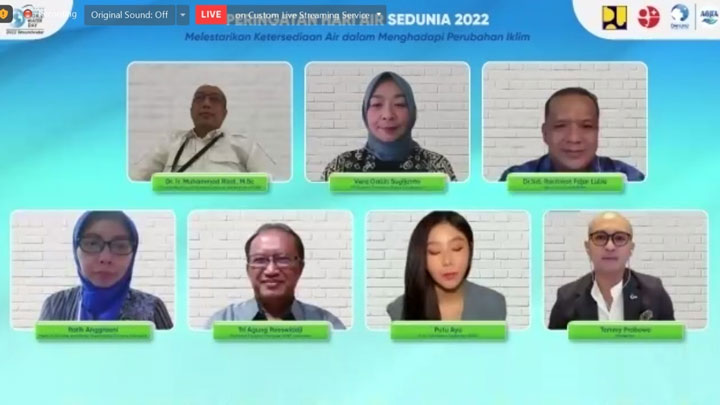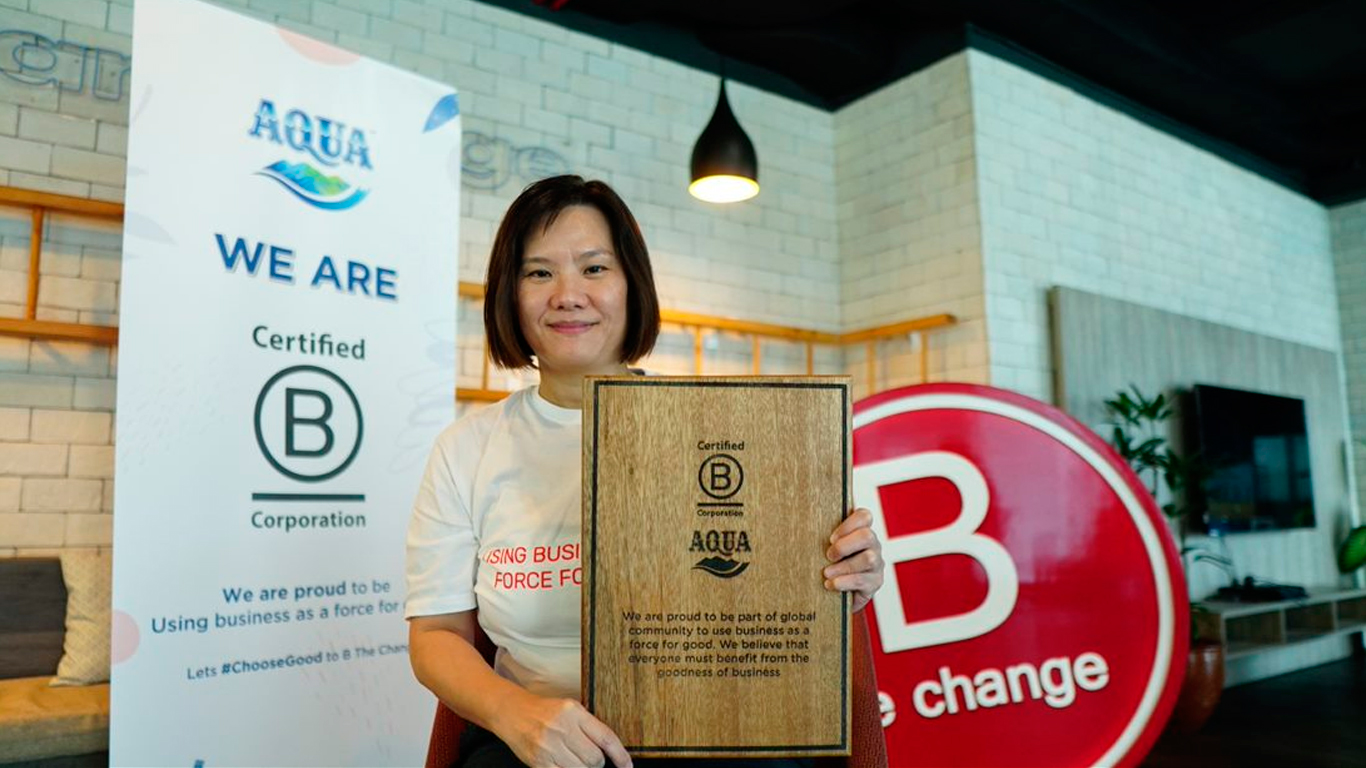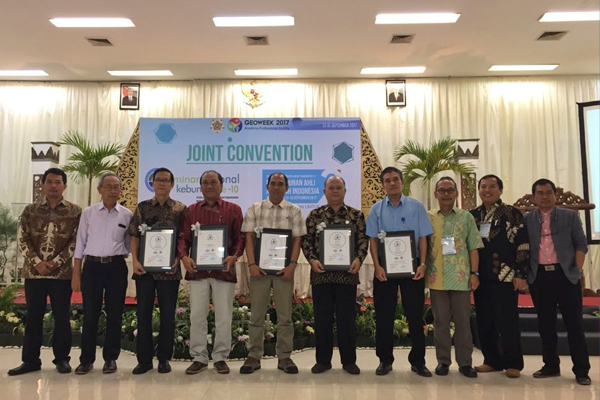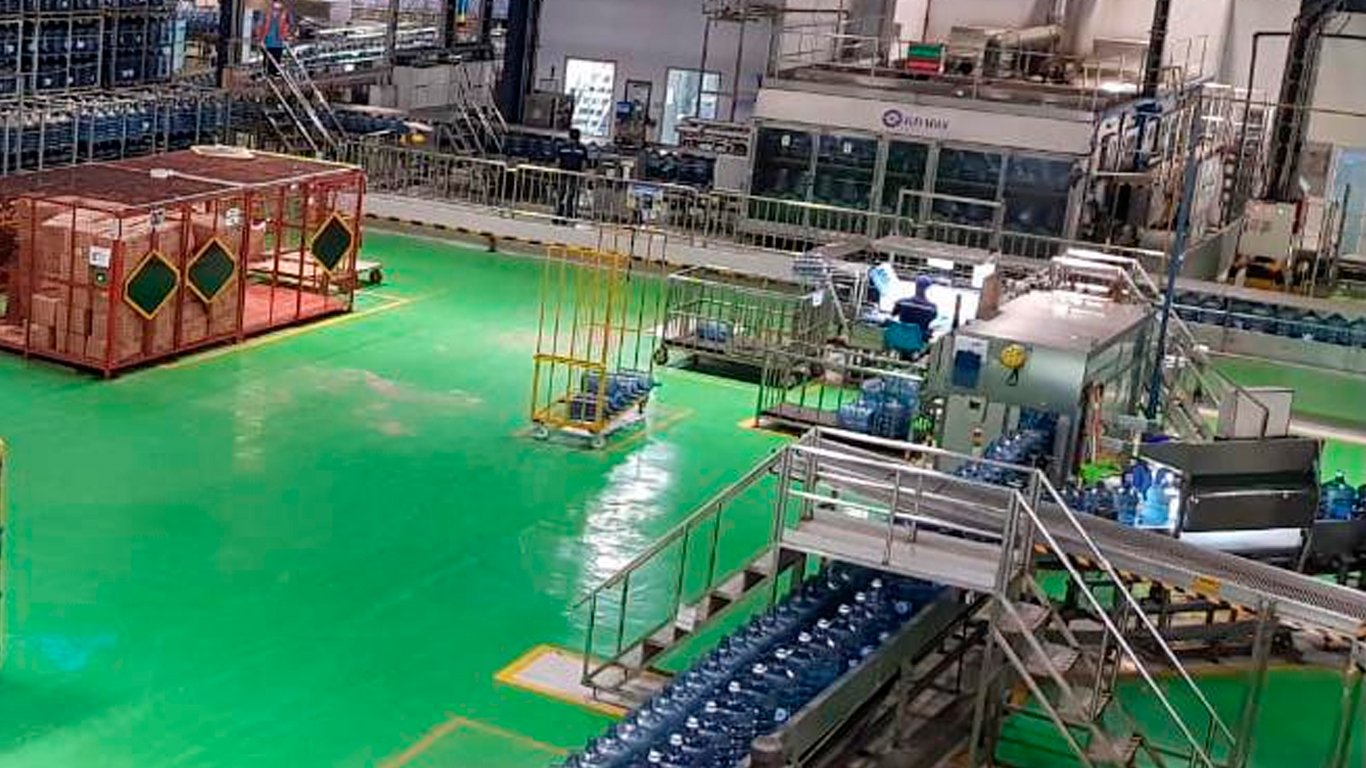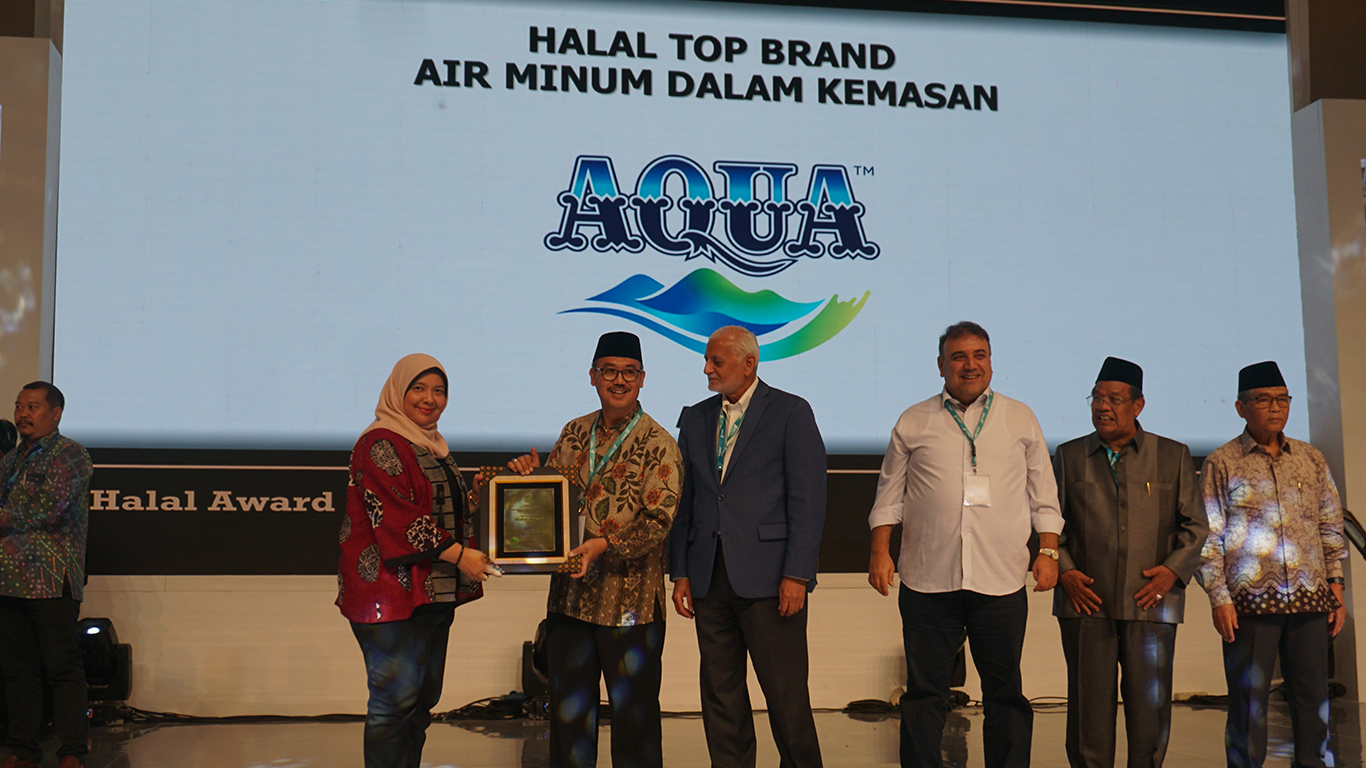Dr. Ir. Muhammad Rizal, M.Si., Director of Water Resources Engineering Affairs from the Ministry of Public Works and Public Housing of the Republic of Indonesia (PUPR) in his speech explained, " The water usage Index in Indonesia shows that some places such as in Java, Sumatra, Sulawesi, and Bali and Nusa Tenggara have moderate to severe critical status, for the water usage index reaches 50% - 100% for various purposes such as domestic, industrial and agricultural. This is a challenge faced by Indonesia, so the Ministry of PUPR must answer with infrastructure development and water resource management aimed as much as possible for the welfare of the community. This is also done to realize the Sustainable Development Goals (SDGs), especially the 6th goal, namely the fulfillment of clean water and proper sanitation in a situation where climate change is currently quite extreme where Indonesia also needs to meet the 13th goal of the SDGs simultaneously, namely Climate Change Management.”
"The involvement of the community and business entities can foster a sense of responsibility in the water resources management and it is expected that the performance of the infrastructure that has been built can be better maintained. Therefore, we appreciate AQUA – DANONE who has held the commemoration of World Water Day 2022 to strengthen our sense of responsibility in preserving Indonesia's Water Resources”, Muhammad Rizal continued.
Integrated Water Management based on watersheds is needed to maintain the balance of the water cycle and ensure that the people around the watersheds are safe from any disasters in order to maintain their livelihoods. A well-managed watershed can ensure that the availability of groundwater is maintained to meet water needs in downstream areas, most of which are urban residential areas and industrial areas.
Tri Agung Rooswiadji, Footprint Program Manager, WWF Indonesia, "Polluted water sources cause the management of the water cycle preservation is also increasingly becoming a difficult process, among which surely the increased cost to process the groundwater, even to prevent its excessive use. The main problem is that we do not know exactly how much groundwater is available, which means that we can fail in the process of utilizing vital groundwater sources, such as watersheds. Exploring, protecting, and using groundwater sustainably will be the key to surviving and adapting to climate change and the effects of the growing human populations.”
Responding to challenges as well as opportunities, one of which is the responsibility of businessmen, Danone-AQUA delivered its programs and initiatives in conducting attempts to preserve the water cycle as well as the water availability. In addition, the attempts to measure the success of positive water impacts have also been carried out together with the National Research and Innovation Agency (BRIN). BRIN validates the analysis and calculation of Stewardship of Water Management activities conducted by Danone-AQUA using the Volumetric Water Benefit Analysis (VWBA) method at two AQUA factory locations, namely Mekarsari and Babakanpari at the Kubang water source.
The Head of Climate and Water Stewardship Danone Indonesia, Ratih Anggraeni, explained "Danone-AQUA thoroughly contributes to protecting groundwater resources by returning water to ecosystems, using water responsibly and improving access to clean water for communities. We are committed to maintaining water resources for environmental sustainability and business with communities and stakeholders. We maintain the quantity and quality of water in watersheds by initiating hydro-geological research, conservation programs, and the establishment of water user forums to ensure the involvement of all stakeholders in managing watersheds.”
"Danone-AQUA continues to develop programs to improve access to clean water, sanitation, and environmental health for communities around AQUA's factories and operational areas in Indonesia that still lack access to clean water. Not only that, but we also collaborate with local and international Non-Governmental Organizations (NGOs) to increase the scope and guarantee the sustainability of the program and initiate innovative business models to support this. We also recognize that a measurable validation process from credible institutions plays an important role in improving the quality of water resource management. Therefore, we partner with the National Research and Innovation Agency (BRIN) to validate our water resources management program”, Ratih continued.
Dr. Sci. Rachmat Fajar Lubis, BRIN groundwater researcher said, " The understanding of the availability of groundwater must continue to be amplified because in this decade the supply continues to decline. Quantification methods in 6 integrated sectors including tree planting, and the construction of infiltration wells for water conservation should be done nationally because it will be very useful to monitor the water availability. In the end, support and participation are needed to maintain water conservation buildings”.
On this occasion also present Putu Ayu Saraswati, Puteri Indonesia Lingkungan 2020 who consistently takes various measures to be environmentally aware and does advocate in the social media realm. “Today I see that climate change with a constant rise in temperature in various parts of the world results in an increasing shortage of water sources used by living creatures. But sometimes it is human actions themselves that pollute water sources, for example, the discharge of household liquid waste into rivers, using chemical fertilizers and pesticides and so on.”
“A simple thing that we can do as part of society is to consciously save water for daily activities, for example in watering plants, bathing, washing, or brushing teeth. The process of brushing your teeth by letting the water faucet continue to flow can result in about 6 liters of clean water wasted in vain. Finally, I appeal to all elements of society to assume the same responsibility in preserving the water cycle and the water availability for our lives”, Putu Ayu concluded.



